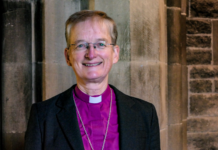The independent lessons learnt review into the Church of England’s handling of allegations against the late Revd Graham Gregory across five dioceses, has been published today. Gregory was sentenced to three years imprisonment in 2014, on two counts of non-recent indecent assault on a girl under 13 years and was further convicted in 2018 of three non-recent indecent assaults against three separate victims, all children and was sentenced to four years four months in prison. He died in jail in 2019.
The review was commissioned by the National Safeguarding Team and carried out by Ray Galloway, who previously led the Jimmy Savile Inquiry at Leeds General Infirmary and was part of the Church of England’s Kendal House review team. The reviewer’s work was informed by the five diocesan reviews in; Chichester, Sodor & Man, Southwark, Southwell & Nottingham and York (to where he retired).
Its purpose is to allow the Church to take steps to enhance and improve its response to allegations of abuse and, thereby, to ensure a safer environment for all. It also considers both good practice and failings in safeguarding practices in respect of Graham Gregory, and the appropriateness of responses by Church bodies to allegations and concerns raised across each diocese in which he held any post.
Statement from Ray Galloway:
The events recorded in this report demonstrate the scale of Graham Gregory’s betrayal of the trust placed in him, the impact of which has been profound and enduring. Accordingly I should like to pay tribute to his victims for their courage in sharing their experiences with the Review Team so allowing us to build our knowledge and understanding of Gregory’s history of abusive behaviour.
Robust and reliable evidence, gathered over more than 25 years, shows that Gregory was a determined and persistent abuser of children who actively sought out and created opportunities to harm his victims.
The children he abused included his own vicar’s daughter, the daughter of a family relative and daughters of his congregants. The latter included one child whose parents were visually impaired and had trusted Gregory with the safety of their daughter when in his company.
Arguably the gravest and most regrettable conclusion of the Review is that of missed opportunity and the harm done that may have been avoided. This was possible because, despite child victims and victims’ parents repeatedly seeking support and protection from members of the clergy, including senior members, they were not listened to nor was action taken. This lack of action continued for almost 50 years. Indeed on at least one occasion an allegation was actively suppressed by a senior member of the clergy and Gregory merely moved to another diocese. That allegation contributed to Gregory’s conviction when it was reasserted some 25 years later.
Whilst for much of Gregory’s ministry safeguarding matters did not benefit from the profile and awareness that they do today, there was still a fundamental moral and professional duty to protect children. It is clear that this duty to the vulnerable was not met where and when most needed. This resulted in Gregory continuing, unchallenged, and further abuse being perpetrated.
Clear and multiple opportunities were missed by the Church to listen to victims, scrutinise Gregory’s behaviour and to take action to protect those children and families involved. This would have stopped Gregory’s abuse, brought him to justice sooner and shown a demonstrable commitment to the welfare of the vulnerable. It is vital that the Church acknowledges and accepts the findings of this Report and makes meaningful and transparent arrangements to address these findings.
Statement from lead safeguarding bishop Jonathan Gibbs:
This report is a stark and harrowing reminder of how the Church failed victims and survivors over many years and allowed Graham Gregory to continue in ministry.
We are deeply sorry and we are aware that the publication today will remind victims and survivors of the appalling abuse they suffered and the awful breach of trust by many Church leaders who sought to support Gregory rather than believe their story and on occasions proactively covered up.
Apologies will never take away the lifelong effect on the survivors and victims and pastoral contact and support is ongoing with all of those who have come forward, including a personal apology from the Archbishop of York, Stephen Cottrell.
We are truly ashamed by the failings highlighted in the report about individuals in the Church. Where there is criticism of poor handling in the past, the National Safeguarding Team, NST, will be seeking reassurance that current safeguarding practice is up to date and that a very different approach would be adopted now. The NST will be considering the findings in the report very carefully in order to assess what further action may be required. We note that some of the Church leaders criticised are deceased.
As we heard at the General Synod safeguarding debate last week, the Church must learn from the past as it moves forward to make the Church a safer and welcoming place for all. As the chair of the independent Safeguarding Board said, we are still dealing with over complex structures and a slow institutional response. Lessons Learnt Reviews are just one of the ways that help us improve.
As lead bishop I am receiving this report on behalf of the national Church and will be taking the recommendations for a full discussion and response to the National Safeguarding Steering Group.



